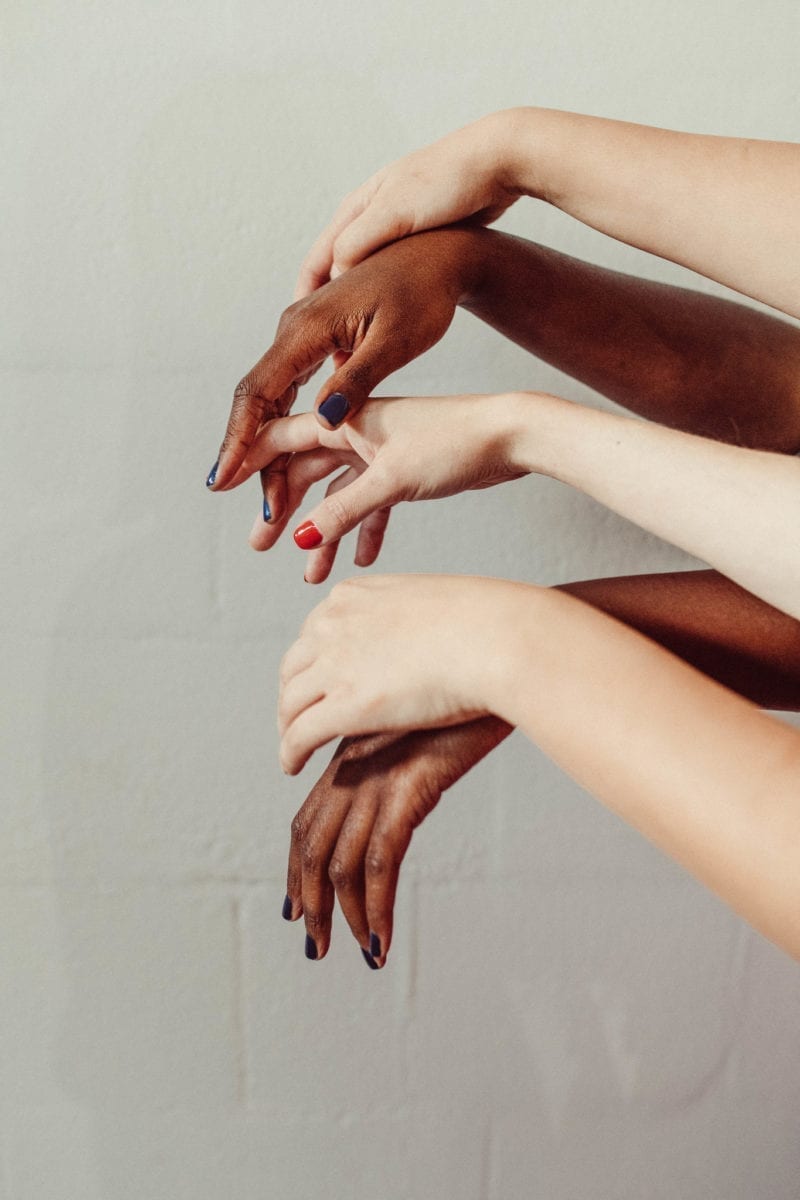This year has been one of the most difficult years I can remember. My sadness, rage and desire for justice in light of the current civil rights movement have led to a deep self-reckoning as I’ve begun to recognize my white privilege. For a long time, I’ve coasted along in a place I believed to be “allyship,” but if the last few months have taught me anything, it’s that I have much more to learn and do.
To truly be an anti-racist ally for the Black community and other communities of color, I needed to start having serious conversations with white people in my own world. Let’s just say, these conversations have not been easy nor comfortable.
I’ve been able to utilize my background in psychology and trauma treatment as a “roadmap” for these conversations. My hope is that they are productive conversations rather than destructive and that both parties leave the interaction feeling heard rather than attacked. I’ve broken up a few techniques into three parts—before, during and after the conversation.
Hopefully, they will lead to effective conversations that educate with both truth and grace. The goal is to maintain the mental well-being of both parties in the conversation so that future exchanges will lead to a true dismantling of systematic racism within American institutions.
Before the Conversation
Educate yourself.
Education can mean reading historical texts or researching the enslavement of Black people and the genocide of Indigenous people in this country. It can look like learning about the historical process of replacing and rectifying damaging language in your everyday speech.
However you choose to continue learning about white privilege and how real allyship is achieved, it’s necessary to do this with dedication for the rest of your life. (We then need to take things further by voting for political leaders who will make changes that actively fight oppression.)
Assess your relationship with the person.
It’s important to consider your audience. Don’t waste time getting in fights on social media. Conserve your energy for mindful conversations with important people in your life such as spouses, parents, siblings and close friends.
I’ve had the most meaningful conversations with my parents so far, whereas I’ve also had to disengage from long-term family friends who have revealed their vehement adherence to racist belief systems. It’s OK to step away from people who aren’t open to constructive dialogue. Focus on relationships where growth is possible.
During the Conversation
Use reflective listening.
This is an amazing tool often used in therapy and something I believe is beneficial for all conversations. Reflective listening is essentially parroting back to someone what they’ve just told you. This not only confirms that you’re understanding what they’re saying, but it also allows them to really hear what they are saying. You can begin with this phrase, “What I’m hearing you say is…[insert what they just said].”
An example from my own life was a discussion I had with a friend who was visibly upset about the looting and damage to businesses following George Floyd’s murder. When I listened to his standpoint, I reflected back that it sounded like he was concerned about infrastructure damage, while I wasn’t hearing any frustration about the deeper levels of police brutality and systemic racism that had led to the looting. He agreed that he hadn’t been focusing on those deeper issues and had some self-reflection about what that meant and how he might address this inconsistency in the future.
Lead with open-ended questions and ask for the listener’s ideas on solutions to the problems.
Open-ended questions are another therapeutic tool for productive conversations. The best kinds of open-ended questions begin with “how” rather than “why.” Asking someone why they think something immediately puts them in defensive mode, but asking them how they’ve come to a certain belief encourages self-reflection.
Returning to my earlier example about my friend’s anger about infrastructure damage, I said this: “If I’m hearing you, you do believe that police brutality against Black people is happening and that it’s not OK,” to which he nodded. Then I went on to ask, “How would you recommend that we oppose these violent systems in ways you believe are productive rather than destructive?”
He was quiet at first, beginning to realize that although he had a lot of opinions about what others were doing “wrong” in the fight for civil justice, he didn’t have any actionable solutions that could replace these behaviors.
After the Conversation
Perform the “butterfly hug” after difficult discussions to alleviate stress.
The butterfly hug exercise is a simple therapeutic tool for stress that helps to “ground” us and return us to physical comfort and stability following a stressful situation. It’s performed by crossing your arms in front of you (palms down) and with the tops of your fingers touching your collarbones, before alternating gentle tapping of each hand against your chest like the wings of a butterfly (Here’s a video on how to do it.)
Conversations about white privilege, anti-racism and allyship aren’t going to be easy. Sometimes, they may lead to disagreements or stressful moments, but this simple technique can help to calm you afterward. You will feel equipped and resilient in order to keep having them.
Have you had conversations about anti-racism and allyship? How can you practice continuing dialogue even when it becomes difficult?
Image via Micaela Fox, Styling via Drew Pruzaniec











